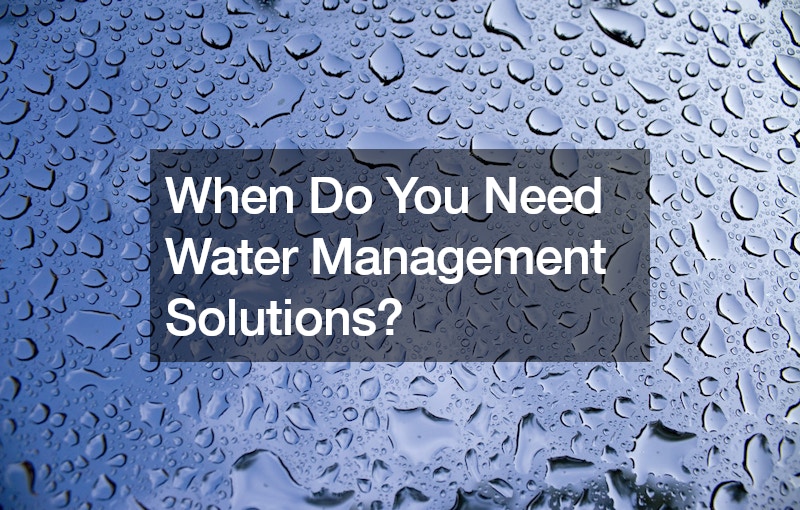
Effective water management is crucial for a variety of scenarios, ensuring the sustainable use of water resources and mitigating risks associated with water excess or scarcity. Whether you’re a homeowner, a business owner, or a municipality, recognizing when you need water management solutions can help prevent problems and enhance the quality of life. Here are key situations when water management solutions become essential.
Flood Prevention and Control
Flooding is a common issue that can cause significant damage to property and infrastructure. Areas prone to heavy rainfall, coastal regions, and places near rivers or lakes are particularly vulnerable. Implementing water management solutions such as flood barriers, drainage systems, and retention basins can help control and redirect excess water, minimizing flood risks and protecting property.
Urban Development
Urban areas often face challenges related to stormwater runoff due to the high concentration of impervious surfaces like roads, sidewalks, and buildings. This runoff can lead to flooding, erosion, and water pollution. Water management solutions, such as green roofs, permeable pavements, and rain gardens, help manage stormwater effectively, reducing runoff and improving water quality.
Agriculture
Agricultural activities require efficient water management to ensure crops receive adequate water while minimizing waste and environmental impact. Solutions like drip irrigation, rainwater harvesting, and soil moisture sensors can optimize water use, enhance crop yields, and prevent over-irrigation and runoff, which can cause soil erosion and nutrient loss.
Industrial Processes
Industries often require substantial amounts of water for various processes, including cooling, cleaning, and production. Effective water management solutions, such as recycling and reusing water, implementing efficient treatment systems, and monitoring water usage, can help industries reduce their water footprint, lower operational costs, and comply with environmental regulations.
Drought Mitigation
Regions experiencing drought conditions need effective water management to conserve and make the most of limited water resources. Solutions like xeriscaping (landscaping with drought-tolerant plants), implementing water-efficient appliances, and enforcing water restrictions can help communities manage water supplies during dry periods and ensure sustainability.
Environmental Protection
Water management is vital for protecting natural habitats and ecosystems. Wetlands, rivers, and lakes can suffer from pollution, overuse, and habitat destruction. Implementing conservation strategies, restoring wetlands, and controlling pollution sources are crucial water management practices that help preserve biodiversity and maintain ecosystem health.
Residential Needs
Homeowners can benefit from water management solutions to address issues like basement flooding, poor drainage, and inefficient water use. Installing sump pumps, French drains, and rainwater harvesting systems can help manage water around the home, prevent property damage, and promote water conservation.
Climate Change Adaptation
Climate change is altering precipitation patterns and increasing the frequency of extreme weather events. Water management solutions are essential for adapting to these changes and ensuring resilience. Communities and governments can implement strategies such as improving infrastructure, enhancing water storage capacities, and developing comprehensive water management plans to cope with the impacts of climate change.
.

